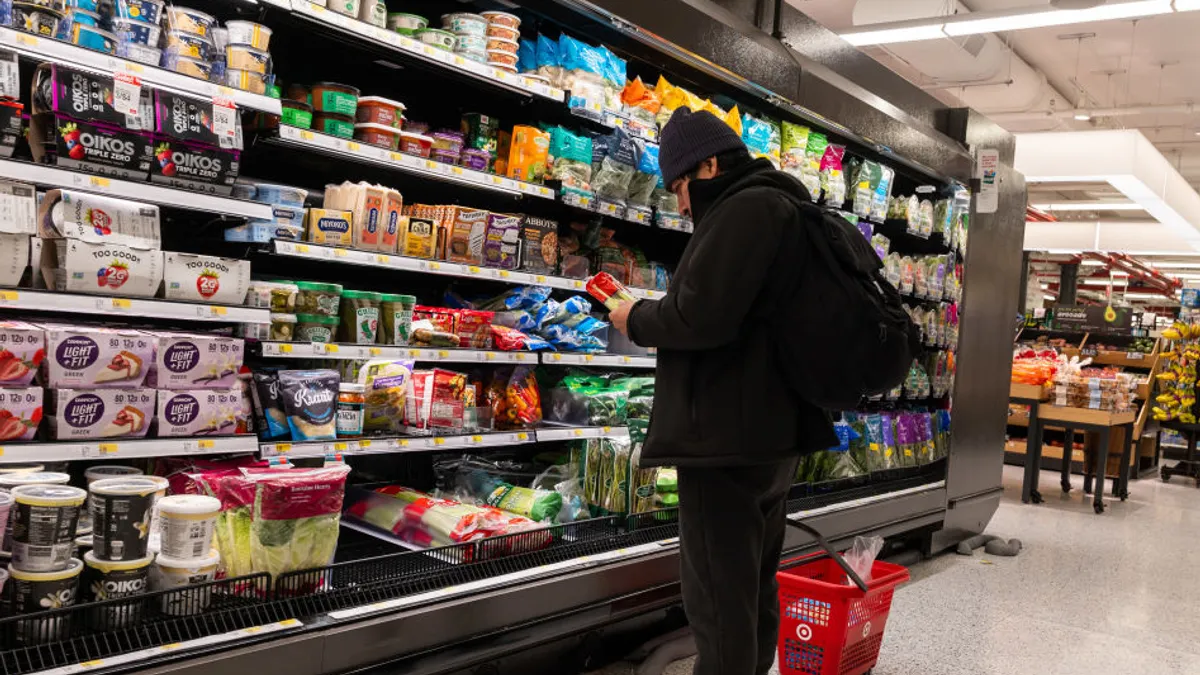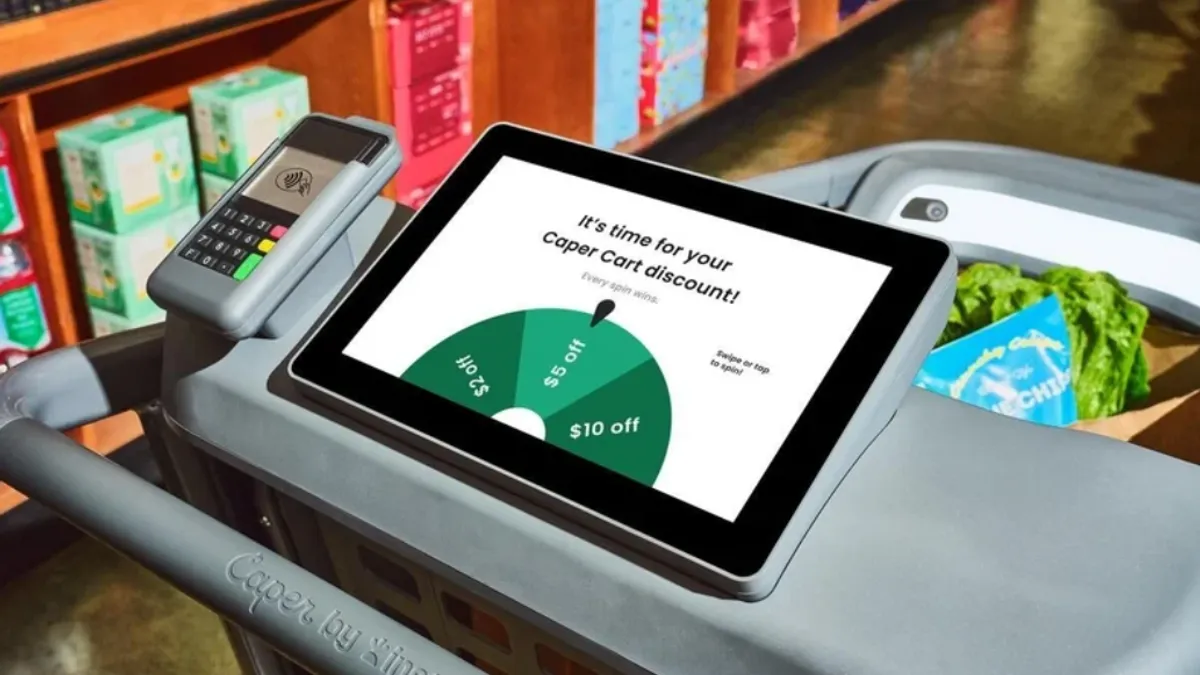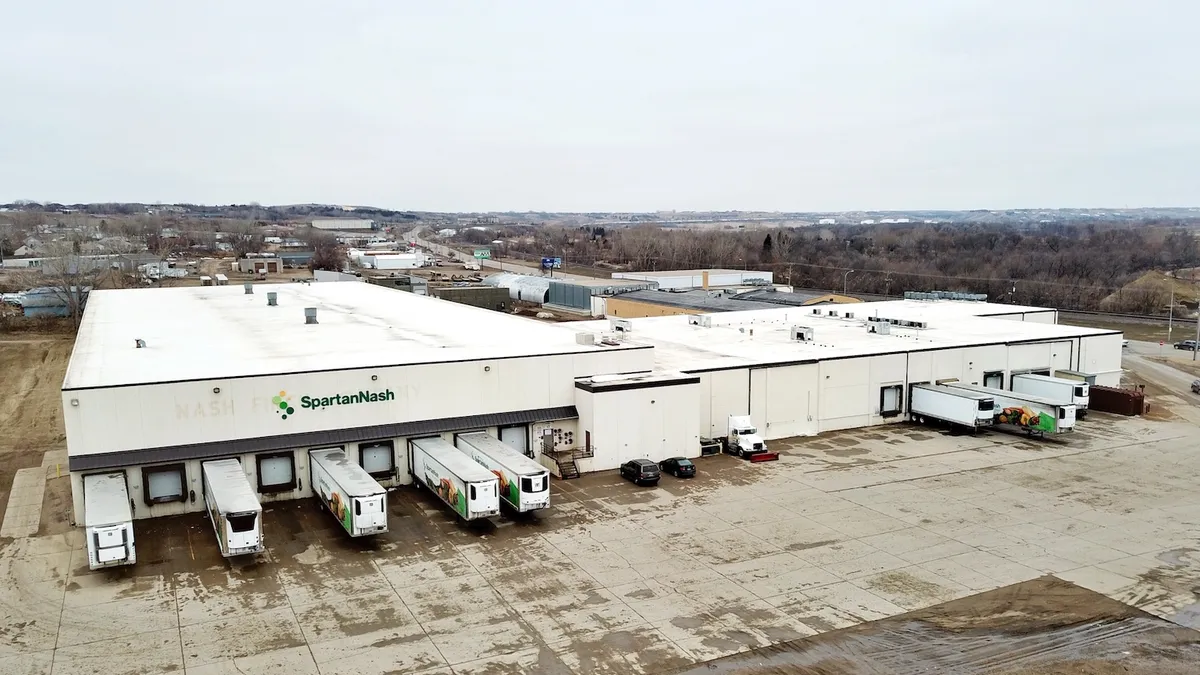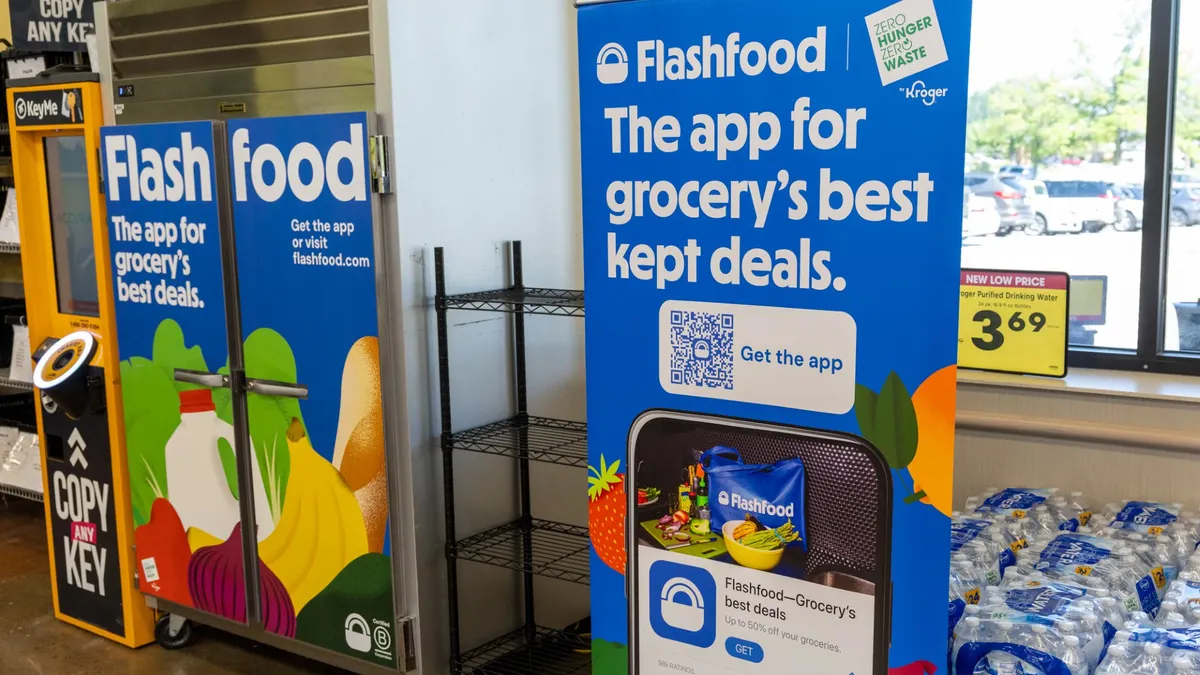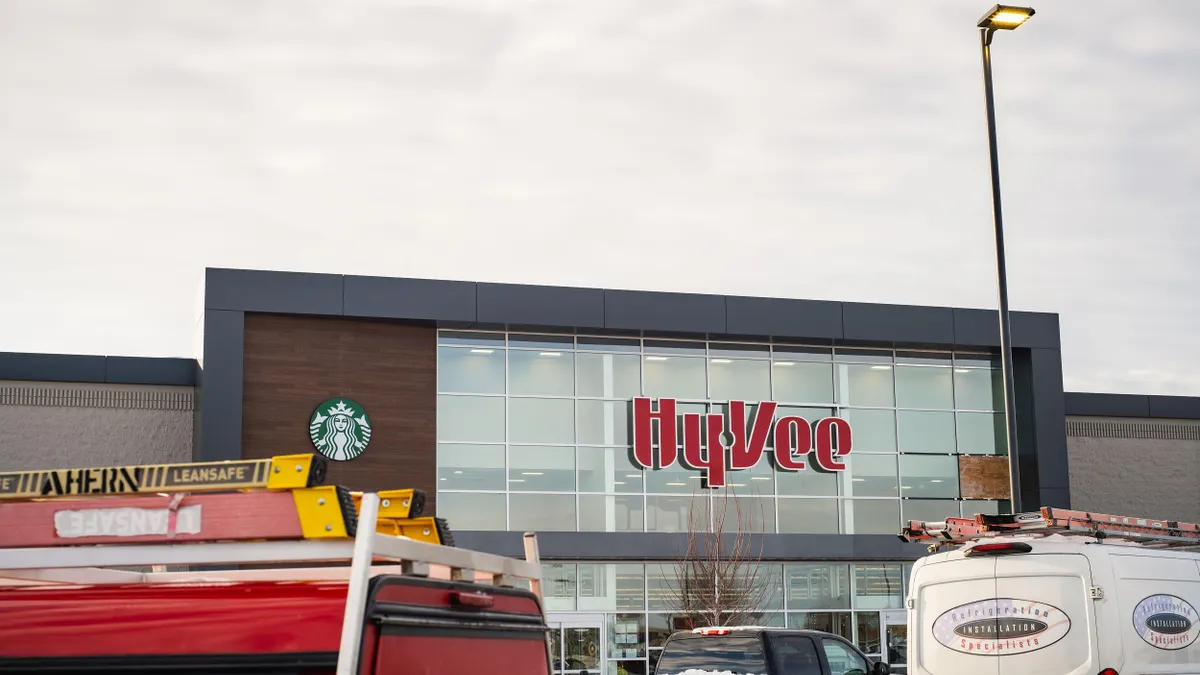Barnaby Montgomery didn't think much of Kozmo.com when it burst onto the scene nearly 20 years ago.
It wasn't thought out or rational, and it "had a flawed assortment of things you didn't really need," he noted. Kozmo's offerings of "ridiculous" products such as gum, ice cream and candy bars was better suited for students in dorms, night owls and partiers rather than serious, profitable grocery consumers.
But despite all its short-comings, there was something interesting and fun about Kozmo, Montgomery said. "At a different time, Kozmo could have worked," he said.
He's hoping that time is now. After acquiring the brand in 2013, inciting a chorus of jeers from around the business world — "Because one dotcom bust wasn't enough!", a Wired headline proclaimed — Montgomery is trying to reinvent Kozmo as an online wholesale retailer.
Far from a gag or a side experiment, Kozmo is aiming to be everything its predecessor wasn't — profitable, self-sustaining and a model for the future of online grocery delivery.
"Kozmo always meant something to me. It meant something that was futuristic and new and did not exist," said Montgomery, who is now the CEO of both Kozmo and Yummy.com, an omnichannel grocery retailer located in California. "I remember when I first ordered from Kozmo I didn’t actually understand why I was ordering. It was just something mysterious to me. That’s why that mystery and interest and the fact that it was something new and nonexistent at the time, was what I wanted to bring to (Kozmo) in version 2.0.”
Taking an online grocer from bust to bankable nearly 20 years after it became an industry punchline is no easy task, as Montgomery will be the first to admit. Although tech innovations and growing consumer demand have made selling boxes of chips and cases of soda online much more viable, it's still a very difficult business.
With Kozmo, Montgomery is hoping a faster, cheaper and more convenient service will lure shoppers online and keep them there even as the small wholesaler fights to withstand pressure from its larger, deeper-pocketed competitors like Costco and Amazon.
"Kozmo always meant something to me. It meant something that was futuristic and new and did not exist."

Barnaby Montgomery
CEO, Kozmo and Yummy.com
'Everything you could ever want'
Kozmo was among the dotcom darlings whose frothy valuations and prospects of untapped and often unrealistic growth convinced investors — including Amazon — to pour in $250 million into the company.
Kozmo began in 1998 in New York City with the premise that consumers could order food, books, CDs, movies or other items from the comfort of their home and get it delivered to them in an hour without a delivery fee. It moved quickly beyond the Big Apple and soon was operating in 18 U.S. cities.
But as the dotcom bubble burst, Kozmo shuttered its virtual doors in 2001 — joining the collapse of Webvan, HomeGrocer and scores of other online operations whose promise remained largely unfilled.
The Kozmo name sat dormant until 2013, when the rights to the brand were purchased by Yummy.com, the brick-and-mortar retailer and grocery delivery service Montgomery started in Los Angeles 11 years earlier.
The new Kozmo didn't debut immediately. Instead, Montgomery spent nearly five years refining the concept — which included creating software and determining how best to deploy it — to ensure it was profitable and self-sustaining once the service rolled out to customers in April 2018.
"There is value in the equity built by new and innovative brands even if they don’t survive in their initial iteration," Montgomery said. "But we are definitely not pursuing nostalgia as a reason or a value. Nostalgia is backward-looking and this is really all about the future. ... The vast majority of people don’t care about Kozmo circa 2000. You can’t offer a service with a name that doesn’t create value for the customer and hang your hat on the fact that it existed once.”
Montgomery's grocery mantra centers on offering an online alternative to the customer that is better than a trip to the grocery store — a difficult proposition given that "the supermarket is conveniently located in your neighborhood and has everything you could ever want," he said.
When Kozmo relaunched last year, Montgomery designed it to be something different than what already existed in the marketplace — including his own Yummy.com service — otherwise there would be little benefit for the consumer and no reason for them to try it.
Even though Kozmo and Yummy offer the same product assortment in the Los Angeles area, how they do it is what sets them apart. Yummy.com delivers groceries in 30-minutes at a price point comparable to everyday prices at the grocery store. Each order has a $6.99 fee with a minimum order of $14.99; those reaching $125 or more are free. In contrast, Kozmo's prices on wholesale groceries are similar to the lowest offerings at nearby retailers. Orders take a little longer to arrive than Yummy.com, usually within two hours.
"We are definitely not perusing nostalgia as a reason or a value. Nostalgia is backward looking and this is really all about the future. ... The vast majority of people don’t care about Kozmo circa 2000.

Barnaby Montgomery
CEO, Kozmo.com
Kozmo, which lists 3,000 SKUs, is able to tap into Yummy.com's existing warehouse and delivery network to fulfill orders. Orders topping $50 on Kozmo are free with the rest having a $5.99 fee. Following the wholesale model, shoppers must order a minimum bulk quantity — five bananas or two containers of eggs, for instance — of each product.
"For people who don't need a delivery, it's not always clear why you're going to order groceries online," Montgomery said. "We couldn’t relaunch Kozmo with the same offer that already existed in the marketplace. As with Kozmo 1.0, the idea is that we’re going to improve your life with an online solution that doesn’t exist in the marketplace.”
Montgomery said the synergies that Kozmo and Yummy.com generate allow the companies together to "go deeper into a customer's life" by offering different solutions that enable it to grab "a larger share of their annual grocery budget."
A customer who had a bad day at work, was stuck in traffic or ran out of something at home, for example, would turn to Yummy with a willingness to a pay a little extra for the convenience, Montgomery said. If the same person is planning for an event like a party or stocking up on beer, milk or meat as part of a larger shopping trip, they would use Kozmo.
Together, shoppers using Kozmo and Yummy.com place nearly 30,000 orders each month. Kozmo isn't advertised online at Yummy.com, but the service is sometimes promoted to Yummy.com customers through direct-to-consumer mailers, Montgomery said.
Each customer in the company's computer system is scored based on the cost to serve them and their impact on margin. The data includes information that helps Yummy.com and Kozmo operate their business profitability, including how much it costs to acquire the shopper, labor dollars spent to pick, pack and deliver the order, and how often the shopper uses the service. The information helps calculate a score that determines how valuable the individual is to the business.
Yummy.com customers usually receive a higher score because they use the service around 14 times annually compared to about seven for Kozmo shoppers. When the person uses both services, they generally score higher, making them more valuable.
"There is a viable business model if done right," Daniel McCarthy, an assistant professor of marketing at Emory University's Goizueta School of Business, said of Kozmo in an interview. "The world is in many ways a different place then it was back when it tried to make that business model work (during the dotcom era), and I think a lot of the changes would be very beneficial to (their current) businesses."
Navigating today's e-commerce business
Consumers today are far more comfortable purchasing their groceries online than they were in the late '90s, with a growing number turning to the web as their primary way to stock up or fill-in shop.
Grocery e-commerce sales totaled $58.9 billion in 2018, according to IRI — a 35.4% increase from the previous year. The Food Marketing Institute and Nielsen forecast revenue will soar to $100 billion by 2025.
While e-commerce only accounts for 2.7% of all food and beverage retail sales in the U.S., it resonates with younger consumers more than any other group — further underscoring the growth potential as this demographic starts families and their purchasing power increases. The growth prospects have prompted nearly every grocer to enter the space, and the wholesale channel is just as competitive with Boxed, Walmart's Jet.com and even brick-and-mortar giant Costco carving out a presence.
Against this backdrop, Montgomery says he wants to expand Kozmo beyond the Los Angeles market. But that will prove to be even more difficult than resurrecting the brand, analysts say.
"It's becoming more of a challenge, certainly more than it was when Kozmo first existed. The space is actually getting very crowded," Neil Saunders, managing director of GlobalData Retail, told Grocery Dive. "I find it very difficult to see how Kozmo is going to scale up. The grocery market is just absolutely cutthroat and if you want to grow nationally you have to have enormous economies of scale."
Even though more grocery sales are migrating online, Saunders said it's hard to capitalize on the opportunity profitably, especially when expanding beyond a local area to one where a company may not have as much control over supply chain necessities like an easily accessible warehouse.
Kozmo is ideally positioned in the Los Angeles area because of the region's high population density and customer base that's willing to pay more for online delivery, he said.
As businesses spend loads of money to grab market share and stay ahead of their competitors, the online grocery delivery space remains financially challenged. Saunders said the most successful companies that emerge could be operations like Kozmo that are able to carve out niches in local markets.
These smaller players could distance themselves from larger, nationwide companies by partnering with independent retailers or having more fresh foods and deli offerings popular with consumers. Boxed, for example, has started offering perishable food sales in Atlanta, Dallas, New Jersey, the New York/New Jersey metro area and Boston, where its warehouses are located.
"I think there are definitely pockets that (Kozmo) can carve out, and maybe they can do other urban markets, but I still see that as being quite small scale," Saunders said. "It doesn't mean to say it's not successful, it's just that it's not going to become, in my opinion, another sort of giant in the e-commerce world of grocery."
Kozmo's anti-dotcom philosophy
Bill Bishop, a longtime grocery consultant and chief architect of Brick Meets Click, said the success Montgomery has achieved with Yummy.com and Kozmo is largely reflective of his ability to eke out a profit amid tight margins and high delivery costs — something that has eluded countless other competitors.
“From the early days, (Montgomery) has created a profitable business, and he has grown that business organically with the profits. That is a huge vital sign for the long-term health of the proposition," Bishop said in an interview. "I mean, how many places do that? Not too many businesses are able to or have the self control."
Montgomery had the foresight to build Yummy.com e-commerce hubs first, thus optimizing pickup and delivery, before opening them up later on to traditional grocery shopping, Bishop said.
He also tapped into the population density in Los Angeles to more frequently serve a larger pool of customers, cutting down the time and cost it takes to run the business.
In addition, Bishop noted that Montgomery has astutely created incentives to get consumers to spend more — when a customer spends $50 an order, Yummy will give them an additional $5 in savings if they spend $60, for instance — and shaped his business as an experience by encouraging shoppers to give the service as a gift.
"He took a very prescribed geography and figured out how to satisfy the needs in that geography. Amazon didn’t do that and now finds itself in the downdraft of building physical stores,” Bishop said. “The reason (Kozmo and Yummy.com) do well is they have a very clear understanding of the market they serve, and I would argue the reason why others don’t copy them is that they don’t have the same clarity."
Despite its decidedly dotcom roots, Kozmo exhibits many traits not customarily associated with businesses from that era.
Sales of the now-profitable delivery business doubled in the last year, Montgomery said. It does very little advertising, which can quickly cause profits to evaporate, and its only capital to grow the operation has come from Yummy.com's founders and profits that have been reinvested back into the business.
“From the early days, (Montgomery) has created a profitable business and he has grown that business organically with the profits. That is a huge vital sign for the long-term health of the proposition. I mean, how many places do that? Not too many business are able to or have the self control to do it."

Bill Bishop
Grocery consultant and chief architect, Brick Meets Click
In addition, Kozmo has eschewed venture capital fundraising. While the cash infusion can serve as a catalyst for expansion, venture capitalists often place time and growth requirements that can prevent executives from experimenting and making tweaks to the business, Montgomery noted.
Despite his past reservations, he hasn't ruled out accepting an outside investor who supports his growth strategy.
“The difference for us is our time horizon. We knew that the amount of time that it would take to figure this out was far greater than the amount of time a capital partner would allow," Montgomery said. "If we had raised money in our initial effort we would be out of business."
Montgomery is looking to expand Kozmo beyond southern California to other parts of the country if he can find the right retailer to partner with. Such a tie-up would entail using retail stores and warehouses to distribute Kozmo products. But so far, it remains a difficult proposition. The lion's share of retailers are going online as a defensive strategy to protect their brick-and-mortar operations, he said, rather than as a means to grow their businesses.
As more consumers purchase their groceries from the convenience of their computer or handheld device, Montgomery is optimistic that grocers will realize that they need to provide a better shopping experience than the store to compete online. This shift will eventually open up new markets and partnerships for Kozmo and Yummy.com, he said.
Bishop suspects Montgomery is contemplating what do next after Kozmo. Not one to rest on his laurels despite his past successes, Montgomery knows "that as good as he is he can be squashed easily" without changing and adapting, Bishop said.
“This company is going to last as long as Barnaby wants it to last," he said. "I think he has demonstrated through his personal style and discipline, and his reserve (to move slow in adding stores and expanding) … He is not racing to get someone to buy him out. He is feeling his way along to see if he can create more value. He is kind of cursed to be relentless tinkerer in terms of improvements.”







